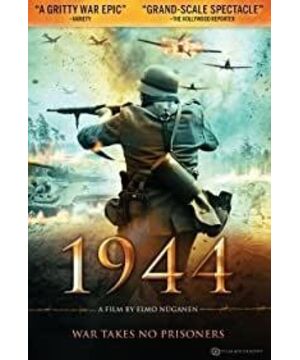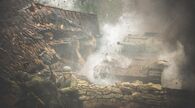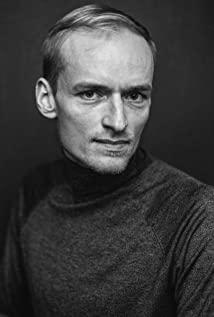"Two brothers, fighting each other for another's war", this is the story of World War II in Estonia. The film tells the tragic Battle of the Tannenberg Line from the perspective of an Estonian soldier who joined the German SS and an Estonian soldier who joined the Soviet Red Army. The first half is from the perspective of the German SS, so I saw the stubborn resistance in the face of the Soviet attack, and when the German officers came to brainwash them, they refused to salute the leader and spat hard at Hitler's photo The turning point came when the Estonian soldiers who had joined the German camp decided to guard a road, they dug their trenches and prepared for an ambush. In the ambush battle with the Soviet army afterwards, the Soviet commander heard the other party's shouting and shouted for a ceasefire. After a silence, the scene where the two sides walked out of the trench became the best interpretation of this movie and even this war: everything people have. Good things no longer exist. Facing compatriots in different uniforms and beliefs, they are all wondering why they are fighting?
It's a roommate fight! This Soviet army is also an Estonian army. The original protagonist died, and the perspective was changed to the Soviet side. The situation was just as bad. There were arrogant and hateful bosses and political commissars, and they had terrifying control and supervision. Of course, there were also those who resisted in the end. One shot. Fascists must be eliminated, but those are only compatriots who were drafted into the army! The choice given at the end of the film is an answer to the question: no matter whose war or whose justice, I only care about my homeland and my lover.
The most impressive scene is before the start of the ambush, joining German Estonian soldiers to share the food of two local elderly people. The simple old man chatted with them about life and hometown; and on the second day, after the battle, the Estonian soldiers of the Soviet Red Army buried the dead Estonian soldiers who joined the German army. Two local elderly people, sharing food and talking about their hometown. When asked where the lads from yesterday were going, they just politely said they went somewhere else. And when these soldiers put on Soviet uniforms and got on the truck to leave, the old man's solemn expression also brought deep thought - they are all compatriots of the motherland, why are you fighting to the death for that dress?
Perhaps, this has something to do with the unique location of Estonia. It is a troubled country, often bullied by foreign powers. For them, Germany and the Soviet Union are foreign enemies. At the beginning of the movie, the story of the family being exiled by the Soviet Union seems to imply the reason for joining the German army, and the Estonian soldiers on the Soviet side are often in this helplessness and fear. Estonia in the war, the meat on the chopping block, waiting for both sides to do it, there is no choice but to bear the consequences of the war: the hometown is slaughtered, the family is destroyed, the relatives are killed or exiled... some are just pain. In fact, the Estonian civilians in World War II were basically cannon fodder for both sides. More than 100,000 people were recruited into the armies of both sides. There is no doubt that they were always responsible for taking the lead and sending their lives to their deaths. And when World War II ended, almost half of Estonians were exiled to Siberia, a small country that was incorporated into the Soviet Union. It was not until the collapse of the Soviet Union that it regained its independence.
It is precisely because of its unique location and state that Estonians cherish the hard-won independence of the country, so they will recreate this cruel history in this way to remind themselves not to forget. Fuck the war, fuck the justice, all we want is a home of our own, a free life, that's all.
View more about 1944 reviews










